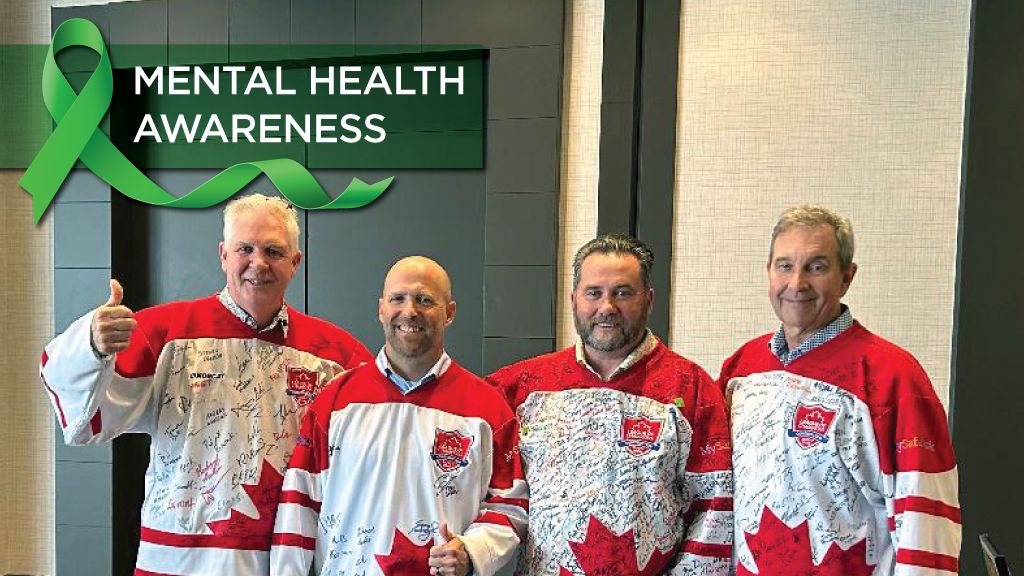Emotional health and safety is an important part of fit for duty.
Openness, empathy, trust and communication are all important elements to creating an emotional safety program in the workplace.
That was the message from Dan Fleming, chair of the League of Champions (LOC) in a recent presentation on Fit For Duty which took place at the Ontario General Contractors Association’s annual Symposium in The Blue Mountains, Ont. in April.
“Creating an emotionally safe workplace is essential for fostering a positive workplace,” said Fleming, who is also manager, GTA with NORCAT.
“Emotional safety is about creating an environment where workers feel valued, respected, heard and about feeling safe and vulnerable to share personal thoughts and feelings without fear of judgment or retribution.”
May 6 to 12 marks Mental Health Week in Canada, organized by the Canadian Mental Health Association. It highlights the importance of breaking the stigma surrounding mental health to help create a more inclusive and understanding world. This year’s theme is A Call to be Kind.
“In the last five years I have seen more instances of mental health in the workplace than I have in 35 years,” said Craig Lesurf, director and past-chair of the LOC and president of Gillam Group.
“The difference is it’s not that it wasn’t there, the difference is it wasn’t talked about. It wasn’t acknowledged, instead it was, ‘suck it up buttercup.’”
Fleming went through the five steps to fostering emotional safety, which is linked to psychological safety in the workplace.
“Focus on trust, trust between workers and the teams,” Fleming said. “Be generous with feedback and recognition…recognizing when your team is doing a good job and encouraging that. Provide autonomy with guidance. Give them the autonomy to do the task but provide them guidance and feedback on how they’re doing it. Create opportunities for connection. Engage with other workers and with the management team and empower the team to learn without fear.”
There are benefits, he added.
“Engagement, better job satisfaction, better mental health,” said Fleming. “When employees feel emotionally safe at work they are more likely to take risks, share innovative ideas and collaborate effectively with their colleagues.”
Four pillars of fit for duty
The LOC outlines four pillars for fit for duty, Lesurf explained.
“These are: they have to be competent; they need to be physically able to do a task or tasks at hand; they have to have their emotions under control; and their mental state needs to be in a place where they can accomplish the task,” he said.
“All workers need to be able to perform the essential tasks of their work assignment in a manner which does not threaten the safety and health of themselves or others or the public at large.”
Workers all bring some aspects of their life with them to work in the morning, Fleming said.
“As a supervisor and as an employer it’s important that we are able to identify that,” he noted. “One of the key things there is that morning FLHA (field level hazard assessment) or asking how everybody’s doing in the morning. You’ve got the tasks and the jobs that they have to do, you also have to have that conversation with your workers and also with your staff as to, ‘How are you today? Are you fit? Are you competent? Are you physically capable but also are you mentally.’”
Being emotionally compromised means when someone is incapable of making rational decisions due to an overwhelming emotional reaction.
“They can’t focus on the actual task at hand because their mind is just sort of racing,” explained Fleming. “Sometimes they could be good at one moment and it just takes that little trigger to set them off and we’ve all seen that.”
Emotionally distracted means when someone’s focus has been temporarily taken away from their task.
“A worker performing a roofing installation received a text message to inform him that his family member died so they are distracted,” said Fleming. “The worker becomes emotional and their focus shifts from the task at hand to the unfortunate news they received. The worker is now unfit to perform the task.”
Metrics and feedback are important
Measuring emotional safety is important to understanding where your organization stands and identifying areas for improvement. Surveys, metrics and feedback can all be used to measure emotional safety, Fleming pointed out.
One tool for measuring emotional safety is the National Standard of Canada for Psychological Health and Safety in the workplace.
“The League of Champions partnered with the Mental Health Commission of Canada,” said Fleming. “They’ve got a new Psychological Safety Standard and they’re doing an audit…You can actually be recognized as having a psychological safety program.”
Follow the author on X/Twitter @DCN_Angela.






Recent Comments
comments for this post are closed